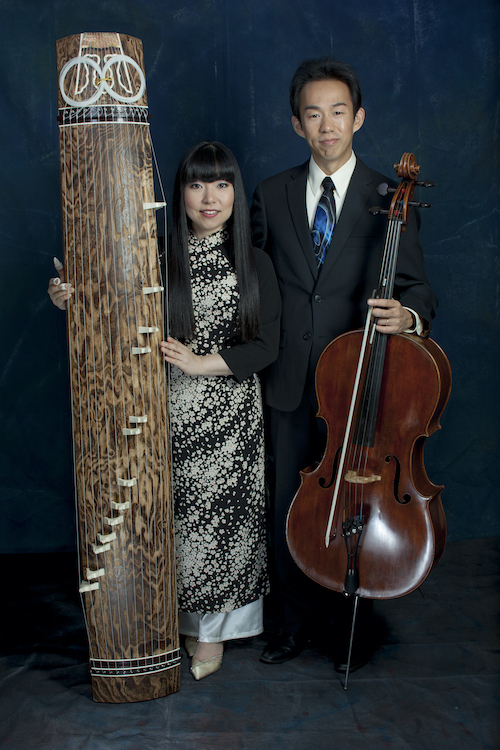Here and Now Festival serves up five world premieres to launch the fall season

While the Sunday installment of Bargemusic’s annual Labor Day weekend Here and Now festival started at 4 p.m. and ended long before the sun set, the program opened and closed with night music: Adolphus Hailstork’s string duet Evensong, and Three Poems From Kanginshu, based on Medieval Japanese dream poetry, by Hiroya Miura. Those were two of the five world premieres in a concert that also featured cellist Wendy Sutter playing selections from Philip Glass’ Songs and Poems I.
This was one of the most consistently fine Here And Now concerts one has heard at Bargemusic, though with some internal ups and downs that themselves made for intriguing unrealized possibilities.
The nocturnal bookends were the most involving moments of the afternoon. Hailstork’s subtitle is “A Suite of Six Nocturnes,” Played by violinist Mark Peskanov and cellist Julian Schwarz, the music had the expected nighttime mood, and something more. There was an Americana twang in the music, plain purpose without ornament. But there was also a palpable sense of sadness, like someone weighing a lifetime of accumulated regrets before laying down for the night. Peskanov and Schwarz seemed hesitant at the start of several phrases, but once begun they shaped everything with expression and weight.
Miura’s Three Poems was written expressly for Duo Yumeno (cellist Hikaru Tamaki and Yoko Reikano Kimura playing shamisen and singing) who premiered the work. This was spare, delicate, focused playing, each gesture full of surprise and drama. The music was graceful and exacting, the musicians careful with space and matching intonation to perfection, the better to pull the most scintillating sensations out of Miura’s microtonal passages. The composition and playing were impressive for how the dry timbres of the instruments, and Kimura’s traditional-style singing, expanded into an evocative and aptly dreamy atmosphere.
There were two vocal sets that ended up reflecting interesting contrasts off each other: Roger Stubblefield’s setting of three poems, Reveries, Opus 25, sung by mezzo-soprano Sophie Delphis accompanied by pianist Marc Peloquin, and Amaryllis and Lies I Tell Myself by Scott Wheeler, who was on hand to accompany soprano Sarah Chalfy.
Both composers set their respective texts with unfussy clarity, balancing the articulation of the poems with the forward motion of the music. One admired how they let the subjects, both joyful and sorrowful, speak without trying to manipulate the listener.
There was a notable difference in performing styles, though. Delphis had a lovely sound and a very straightforward classical manner, following rhythms, dynamics, and phrases in detail. Chalfy, who has both classical and stage experience, sang beautifully but with more expressive technique and, crucially, a sense of character. One was singing, the other was performing, and while the Stubblefield came off as fine but dry, the experience of Wheeler’s new pieces was much more meaningful, and one wondered what the former would have sounded like had Chalfy sung them.
In between the songs, Peloquin played Roberto Sierra’s Sonata No. 9, part of a recent wave of piano sonatas from the composer. Peloquin described it as “a compact piece that packs a punch,” and then ran it off with energy. While not a miniature, the sonata had just enough material to create it’s own three-movement structure and form, and one enjoyed hearing such concentrated, succinct thinking. There were plenty of technical challenges in the music, and the expression hinted at both stimulating brittle tension and, in the slow middle movement, some Webernian mystery.
Glass’ Songs and Poems are familiar through Sutter’s recording of the music and her performance earlier this year for the Crypt Sessions. This music was was written for her, and she is unsurprisingly a masterful player. There is a real relationship between composer and performer in the Songs and Poems, with Glass writing longer lines than one normally hears in his work and Sutter pushed and pulled the phases, wringing the last drop of expression from the notes while never losing contact with the steady forward motion.
The Dorian Wind Quintet plays music of Bach, Mozart, Bruce Adolphe, and Karl Kramer, 7 p.m. Friday, September 9. bargemusic.org